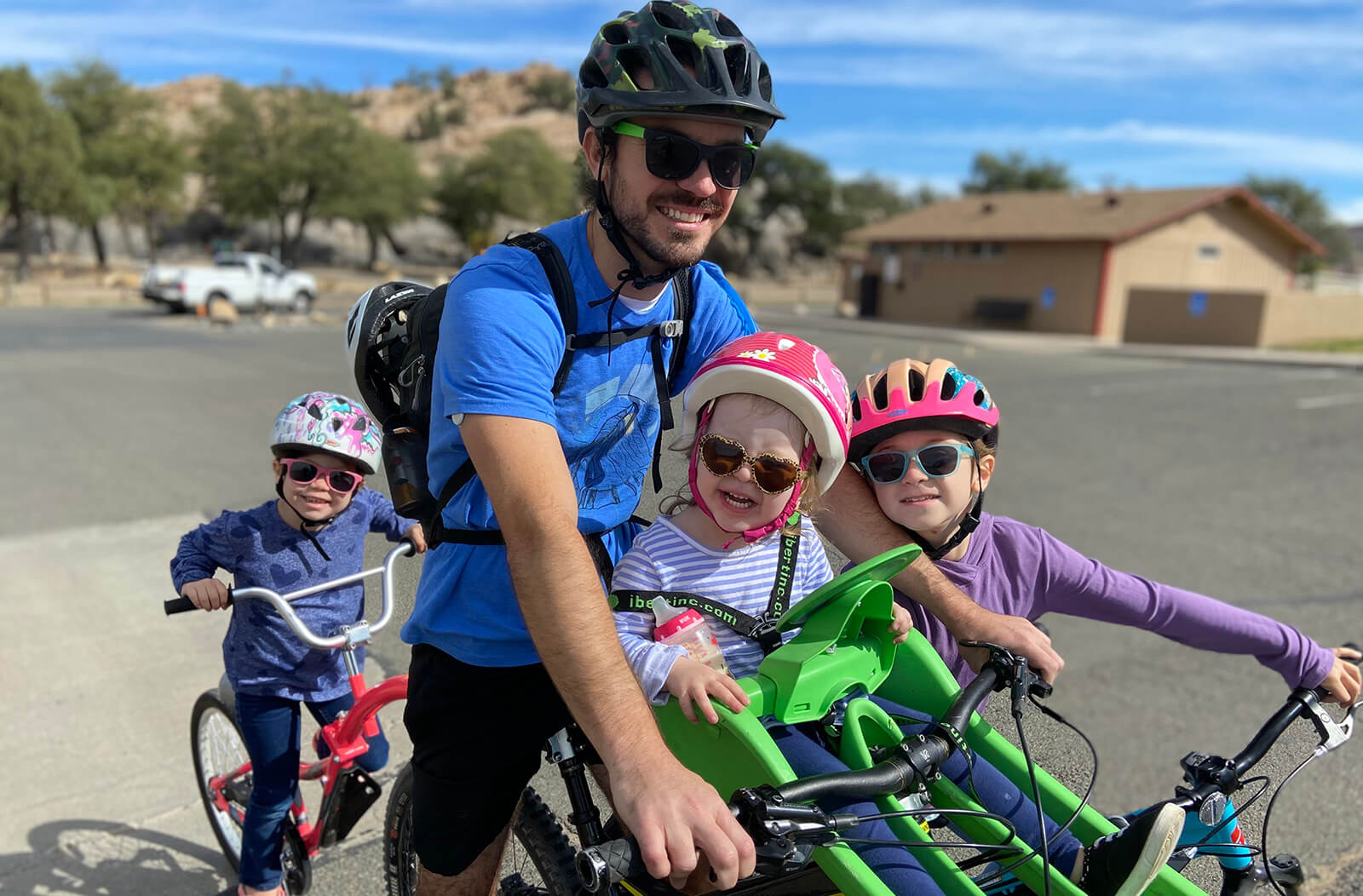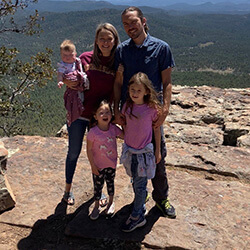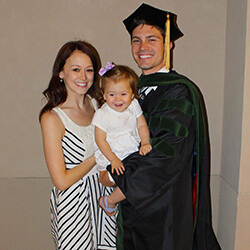
Alumni Profile: Matt Evans, MD

Catching Up with Dr. Evans
Matt Evans, MD, graduated from the University of Arizona College of Medicine – Phoenix in 2013 and matched into family medicine residency at the University of Utah in Salt Lake City.
After finishing residency in 2016, he started his family medicine practice in Salem, Oregon, and later moved to Prescott, Arizona. Dr. Evans then shifted his focus into addiction medicine, completing a fellowship in the Valley.
He serves as the medical director of substance use disorder services at Valle del Sol and lives in Phoenix with his wife and children.
Life as an MD
What initiated your interest in substance use disorder treatment?

What lessons have you learned in your career? And is there any advice you can give to our current medical students?
I chose family medicine because I wanted to go into a field where you can do a lot of different things. In family medicine, you can do primary care, addiction medicine, public health, run a residency program and many other things. Choosing a specialty that doesn’t narrow you into doing only one job for the rest of your life is something I’d recommend.
What helped you stand out as a residency candidate?
I think what helped me stand out is knowing myself and talking openly about my goals and aspirations. If you're trying to fit yourself inside of a box that makes you the best possible candidate, then you may be advertising yourself in a way that isn't genuine. So, "be yourself" isn't just some trite and meaningless phrase; it's a mantra to repeat to yourself so you end up working in a role that aligns with your values and gives you meaning.
Which aspects of your medical training prepared you well for residency? Were you able to hit the ground running?
I think the aspect of my training at the college that prepared me well for residency was adaptability. Training at the college in its early days was a special experience. Since it was a new medical school, some of the clinical rotations were not yet "hand-tailored" to perfection. This made me an even better resident, because sometimes to give the patient the best care possible, you must be adaptable.
Working with people who use drugs to lead a better life also can involve jumping into the lake of chaos to help them navigate uncharted waters of trauma and despair. Expecting perfection in substance use disorder patients right out of the gate is a recipe for burnout. Making sure patients understand that you'll walk with them through the chaos no matter what happens can lead to a sense of trust and support they haven't ever experienced before in their lives. Being adaptable was not only a good skill to excel in residency, but also in my career and in life.
What are some things you learned in medical school that have benefitted you the most in your career as a physician?

What do you miss the most about the College of Medicine – Phoenix?
Luckily, I keep in contact with the friends I went to medical school with. What I miss the most is being around all those awesome people that I got to spend a lot of time with. Some of the best friendships I have and some of the coolest experiences I remember come from my time in medical school.
Topics
About the College
Founded in 2007, the University of Arizona College of Medicine – Phoenix inspires and trains exemplary physicians, scientists and leaders to advance its core missions in education, research, clinical care and service to communities across Arizona. The college’s strength lies in our collaborations and partnerships with clinical affiliates, community organizations and industry sponsors. With our primary affiliate, Banner Health, we are recognized as the premier academic medical center in Phoenix. As an anchor institution of the Phoenix Bioscience Core, the college is home to signature research programs in neurosciences, cardiopulmonary diseases, immunology, informatics and metabolism. These focus areas uniquely position us to drive biomedical research and bolster economic development in the region.
As an urban institution with strong roots in rural and tribal health, the college has graduated more than 1,000 physicians and matriculates 130 students each year. Greater than 60% of matriculating students are from Arizona and many continue training at our GME sponsored residency programs, ultimately pursuing local academic and community-based opportunities. While our traditional four-year program continues to thrive, we will launch our recently approved accelerated three-year medical student curriculum with exclusive focus on primary care. This program is designed to further enhance workforce retention needs across Arizona.
The college has embarked on our strategic plan for 2025 to 2030. Learn more.